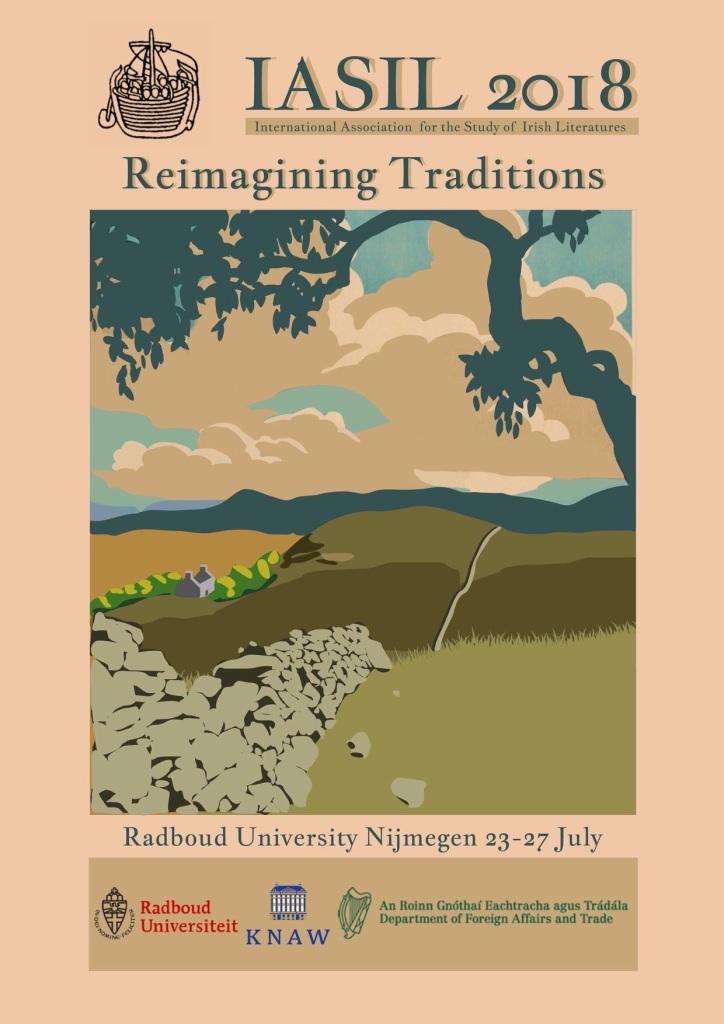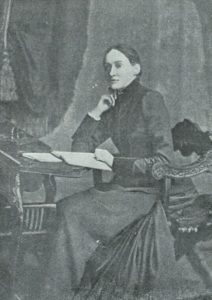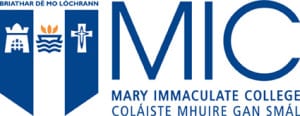Building Bridges: Facilitating International and Interdisciplinary Networks For Early-Career Researchers
Sophie van Os, PhD Candidate Radboud University Nijmegen
Building Bridges: Facilitating International and Interdisciplinary Networks for Postgrads and Early-Career Researchers, Sophie van Os, PhD Candidate Radboud University Nijmegen
Geraldine Brassil (PhD Student Mary Immaculate College + Postgraduate Researcher for the IWWN) has illustrated in her wonderful blogpost that literary networks played a vital role in the careers of women writers from the nineteenth century:
“Jane Wilde (1821-1896), for example, made her Dublin home a focal point for academics, artists, and writers. It was at one of Lady Wilde’s ‘afternoons’ at Park Street, London, however, that Katharine Tynan (1859-1931) was introduced to her son Oscar. […] Breaking into the London literary scene at the same time as Tynan, Hannah Lynch (1859-1904) was also introduced ( as ‘a young Irish genius’) to Oscar Wilde by his mother at one of her Saturday salons in 1884. The impact of fin-de-siècle Paris salon culture was to inform and enable Lynch’s literary career while Tynan’s memoirs, recalling her active networking, read like a directory for all those involved in the literary and publishing worlds of nineteenth century Ireland, and indeed, transnationally (Brassil 2020)[i].
Although it would be unwise to compare myself to incredible female writers like Wilde, Lynch, and Tynan, I would nevertheless argue that the same may also be said for early-career researchers and Postgraduate students working on Irish studies in the present time. Networking and socialising, especially in light of the global pandemic, has become more important than ever, not only for the furthering of academic careers but also to prevent isolation. In 2019, for instance, the University of Groningen published a report that highlighted the amount of pressure that PhD students and young academics were under at that time, and the many ways in which this had affected their mental health[ii]. Many additional studies have found that PhD students are often buried under a very heavy (unpaid)teaching load, feel pressured to ‘publish or perish’, are obliged to participate in extracurricular activities to ‘enhance and build their CVs’, and most importantly often feel alone. Although I am part of a very supportive English Department and wonderful research team, I do recognise some of these issues and I am very grateful to have the opportunity to discuss these concerns with other postgraduate members of the Network Team.

Being able to communicate and connect with scholars from the field is thus extremely important, but at times, also very difficult, especially when you are a postgraduate researcher outside of Ireland. In 2019, like Geraldine, I was fortunate enough to become a Postgraduate member of the Irish Women’s Writing Network. At the time, I had just completed my Master thesis on the representation of gender and nationalism in Irish nineteenth-century women’s writing from the Great Irish Famine, under the supervision of Prof Marguérite Corporaal. My thesis examined the representation of English female characters in the literary works of Mary Anne Sadlier, Mrs. Hoare, Alice Nolan, and Edmund and Julia O’Ryan through the lens of postcolonial theory, gender and feminist theory, and Leerssen and Beller’s concept of imagology. The analysis of these works revealed three very distinct patterns in literary depictions of English womanhood which strongly reflected the authors’ opinions on gender, class, and politics, and were very telling of the ways in which the national character of the English was portrayed in nineteenth-century Irish literature of the Famine. I, moreover, linked these representations to well-known and widely distributed nineteenth-century artistic depictions of national personifications, such as Sir John Tenniel’s rendering of Britannia, Hibernia, and Erin in Punch Magazine. On the basis of these representations, I was able to conclude that the Irish female authors of these novels were aware of the national rhetoric at the time, but did not buy into the stereotypical national discourse. Instead, they sought to modify representations of national stereotypes and use them in their own, often satirical, ways. I presented some of these results at the EFACIS 2019 Conference in Ljubljana, for which I received the Werner Huber Travel Bursary. Being able to discuss my results with scholars from across the globe was extremely valuable, and it opened my eyes to the importance of connecting and communicating with researchers across the field.
Following my interest in periodical studies, imagology, and gender studies, I started my PhD in February 2020 at the Radboud University Nijmegen, the Netherlands. My research, which is part of the NWO-funded VICI project ‘Redefining the Region: The Transnational Dimensions of Local Colour’[iii], examines the transnational dimensions of the region in European illustrated periodicals from the long nineteenth century. While these illustrated periodicals have traditionally been identified with nation building, they had a transnational scope in terms of subject matter, and borrowed heavily from periodicals elsewhere: many illustrations and texts (in translation) ‘travelled’ from one national context to another, being reprinted in periodicals elsewhere in Europe. My project therefore investigates in what ways regions elsewhere in Europe featured in these periodicals; and, additionally, how visual and textual materials on the region circulated (in reprint) in various European and transnational contexts and readerships through this new mass medium. Moving away from traditional nation-oriented approaches, and engaging with methodologies of identity studies, periodical research, reception studies, and migration theory, my project examines the construction and representation of regional identities in relation to notions of exclusion, gender, age, and class, in a specific corpus of nineteenth-century European illustrated periodicals, including De Hollandsche Illustratie (1864-1919), Euphonia (1814-1829), Illustrated London News (1842-), The Graphic (1869-1932), Le Petit Journal (1863-1944), and Le Monde Illustré (1857-1940). Although the main focus of this project is not to recover and study the lives and work of Irish women writers, artists, historians, scientists, etc., I hope to include more nineteenth-century representations of the Irish region and Irish women, more specifically, in my corpus. I am very interested to see how European illustrated periodicals depicted the Irish region, and I am also keen on uncovering illustrations and paintings made by Irish female artists.
Although I am from the Netherlands, and have also completed both my BA and MA at a Dutch university, I was fortunate enough to become part of a relatively small, but nevertheless impressive, Irish department at the Radboud University who, for example, hosted the 2018 IASIL Conference. Through my associations with established scholars from the Radboud University, I was able forge new connections with scholars outside of the Netherlands (for instance with the wonderful members of the IWWN-team) but I recognise that I am very lucky and privileged, and that this is can be very difficult for early-career researchers from different, cultural, political, and socio-economic backgrounds (in addition to the constraint of the current global pandemic). Following these observations, the Irish Women’s Writing Network has decided to set up the Postgraduate Forum. The main aim of this Forum is to facilitate international and interdisciplinary connections and exchanges between postgrads/early-career researchers recovering and studying the lives and work of Irish women writers, artists, historians, scientists and more. The Postgraduate Forum is open to Master students, PhD students/candidates, and young independent scholars. We invite postgrads/early-career researchers from all walks of life to participate in the Postgraduate Forum through various forms of engagement. In the future, the Postgraduate Forum hopes to (amongst other things) host reading groups, blogposts, Twitter events, guest lectures, Q&A-sessions, online discussions, and informal chat sessions.
[i] Brassil, G. ‘Everybody who wrote was a wonder to me’ Katharine Tynan, 1913 [Online]. Available at: https://irishwomenswritingnetwork.com (Accessed: 4 October 2020).
[ii] Scheer, van der, E. A. PhD Survey 2019: Experiences of PhD students at the University of Groningen [Online]. Available at: https://www.rug.nl/education/phd-programmes/about/phd-survey/ (Accessed: 7 September 2020).
[iii] Redefining the Region 2020, Sophie van Os, Radboud University Nijmegen, viewed 4 October 2020, https://www.ru.nl/redefiningtheregion/researchers/sophie-van-os/.



